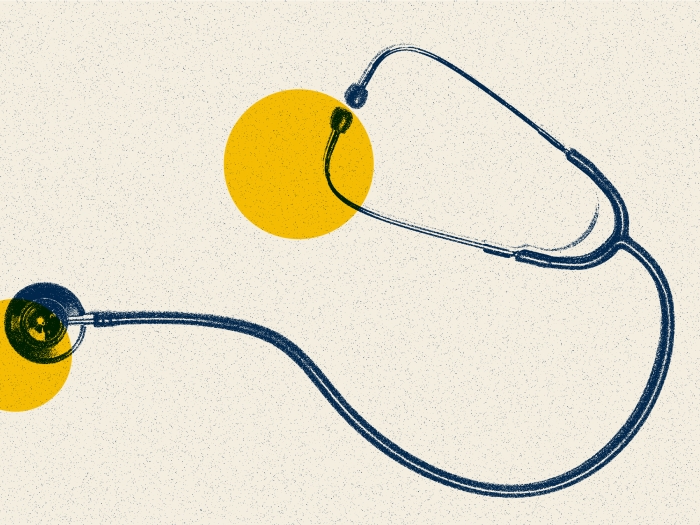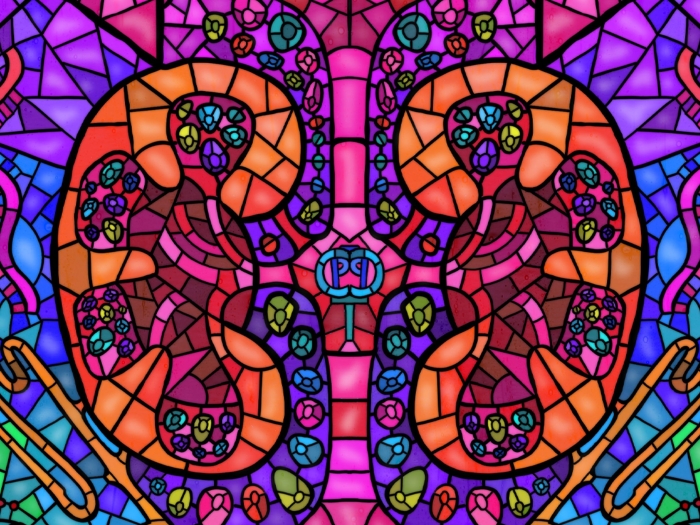After years of hard work, graduating students learn what’s ahead
Author |
Today, 173 University of Michigan medical students excitedly learned their fates as future health care providers as they read their letter from the National Residency Match Program, revealing where they’ll head for the next chapter of their training. But this time, it happened electronically.
In the midst of the COVID-19 crisis, Match Day continues across the country as an annual milestone that highlights where graduating students have been accepted for residency training and will begin the next phase of their education. At noon, each student received online notification from the National Resident Matching Program (instead of the traditional envelopes in the spirit of social distancing) containing the name of the medical center where they will embark on specialized training to shape their medical careers.
As both the health system and the medical school have been working hard on the health issues in our community, this year’s Match Day celebration is very different than in years past. Specifically, students are sharing their excitement in real-time via the medical school Twitter and Instagram accounts.
A special YouTube playlist will feature student and med school community-created videos. Students will also add pins to a Google map showing where they matched throughout the country.
An outstanding 98.2 percent of Michigan Medical School students matched, exceeding the national average of 93.7 percent, meaning that one of the residency programs named on their list is where they will head for their training.
35.2 percent of the students will stay in Michigan for the next level of their training, including 22 percent who will continue their education at Michigan Medicine, U-M’s academic medical center. The rest will take on training throughout 22 other states.
“This year Match Week occurred during one of the most stressful and important moments in our nation’s history,” says Rajesh Mangrulkar, M.D., associate dean for medical student education. “In the middle of all of this, our soon-to-be graduating students inspired us in so many ways. They continued to serve our patients, and also have begun to lead several new community service initiatives to help during this difficult time.” Mangrulkar continued, “They are all future outstanding healthcare providers who in a few short weeks will join professional teams to manage our patients with COVID-19 across the country.”
Notable accomplishments for this year’s senior medical students:
- Nearly 68 percent of the matching class began their journey through medical school in 2016, which means that they experienced a majority of the elements of the school’s new curriculum. The curriculum’s key elements include Branches, Paths, Impact Capstones and increased opportunities for students to obtain dual degrees.
- The M3 and M4 years, collectively known as the Branches, prepare students for the future by focusing on making meaningful impact in the areas that matter to them the most. Almost 88 percent of this year’s matching class completed a Branch, which provided them with more time and space for professional exploration electives, clinical training, residency preparation, Capstone projects and leadership development.
- U-M also offers students the chance to choose a scholarly concentration, such as health policy or global medicine, where they can focus on a path that interests them during their first few months of medical school. The Paths of Excellence provides students with eight interdisciplinary options to help them gain knowledge and skills that are not traditionally found in their required curriculum. Almost 72 percent of the matching students completed a Path of Excellence, while 126 students completed a Capstone for Impact (CFI) Project. An index of summaries for these impact projects can be found here.
- A total of 42 students this year will graduate with both a medical degree from U-M and an advanced degree in another field from graduate programs at U-M, Cambridge University, Harvard and elsewhere. These degrees include Ph.D.s as part of U-M’s prestigious Medical Scientist Training Program (MSTP), or master’s degrees in public health, clinical research, business or a residency program in Oral and Maxillofacial Surgery.
“Our graduating students are at a very pivotal point in their careers during an extremely challenging time,” said Marschall S. Runge, M.D., Ph.D., executive vice president for Medical Affairs at U-M and dean of the U-M Medical School. “And they’ve demonstrated leadership in so many different ways, inspiring us all. As they embark on a new challenge, I am confident that they will lead by example as the future of healthcare.”
For more about Match Day, please visit http://www.nrmp.org.
And for more about Match Day at the U-M Medical School, please visit: https://michmed.org/match

Department of Communication at Michigan Medicine





